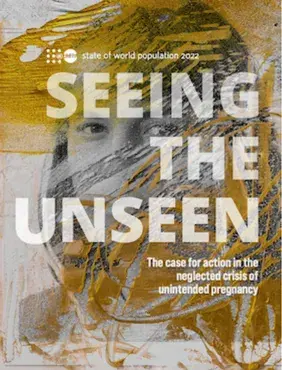This year’s edition of the State of World Population, “Seeing the Unseen: the case for action in the neglected crisis of unintended pregnancy," has found that every year almost half of all pregnancies are unintended. More specifically, between 2015 and 2019, there were roughly 121 million unintended pregnancies (331,000 per day on average) each year. Globally, an estimated 257 million women who want to “avoid pregnancy” are not using safe, modern methods of contraception and it has been found that contraceptive use is 53 percent lower among women who have experienced intimate partner violence. This implies that many women are still unable to say no to sex and are unable to make decisions on their sexual and reproductive health. The consequences of unintended pregnancies compromise women’s health and safety (e.g. maternal death from unsafe abortion), more abortion, financial burdens, and many others.
Today, we are calling on the world to recognize that unintended pregnancy is:
A personal issue, one that robs women of their most life-altering reproductive choice.
And it is a health issue, one that drives up unsafe abortions, which is one of the leading causes of maternal death globally.
It is a human rights issue – both causing and resulting from gender discrimination and
inequality.
It is a humanitarian issue. We know that women in conflict zones and refugee camps face a high risk of unintended pregnancy, including from sexual violence.
It is a development issue. While every country has unacceptably high rates of unintended pregnancy, we see strong correlations between rates of unintended pregnancy and lack of development.


